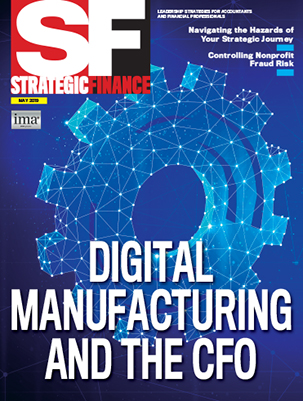Paul is the Vander Wolk Professor of Managerial Accounting and Operational Performance at Babson College, where he teaches managerial accounting and strategic cost management courses in the MBA and undergraduate programs. Before joining the Babson faculty, Paul taught at Wake Forest University. He earned his Ph.D. from Syracuse University and both his BBA and MBA from Pace University.
Paul has provided service to IMA in various roles, including as a member of the Global Board of Directors, chair of the ICMA Board of Regents, chair of the IMA Research Foundation, and chair of the Performance Oversight and Audit Board Committee. He also spent 10 years as associate editor of the IECJ® (IMA Educational Case Journal). In 2015, he received IMA’s R. Lee Brummet Award for Distinguished Accounting Educators.
Here’s a brief Q&A to help members get to know Paul better:
When and why did you become a CMA?
My certificate number is 6187, awarded more than 30 years ago in April 1986. I did my undergraduate work at Pace, which has a very strong accounting program, but like many schools, the focus was primarily on pursuing the CPA. I found myself most drawn to my managerial and cost accounting classes and wanted to consider what other options might be out there, so I spoke to my faculty advisor. Fortunately for me, he told me about IMA and the relatively new CMA certification. I researched the organization and certification a bit more and liked what I found out. I didn’t turn my back on the CPA path but since I was in test-taking mode, I decided to take the CMA exam as well. The breadth of the CMA exam was challenging, but the rewards were well worth it once I passed.
What’s been one of your most meaningful experiences as an IMA member?
There’s no question that my recent visit to India was one of my most meaningful experiences, because my interactions with the students there were so gratifying. Seeing their energy at the first annual India Student Leadership Conference–and witnessing their enthusiasm for the CMA at the numerous universities I visited–tells me that IMA truly is making a difference in students’ lives.
What’s one thing you’d like to accomplish as IMA Chair?
I’ve spent most of my professional career as an academic. As an educator, I’m constantly interacting with students, both graduate and undergraduate, to help them become career-ready. This work is aligned with one of IMA’s key areas of strategic focus: raising awareness in the student/academic community to expand the membership pipeline and reach the young CMA-certified professional of tomorrow. Some of this awareness will come through enhancing the visibility and recognition of our various IMA student and academic-focused benefits, including student scholarships, IMA Endorsement Program, and student leadership conferences. Similar to what IMA has accomplished with the Women’s Accounting Leadership Series, I would like to see the creation of student leadership conferences in more of our regions.
What’s something about yourself that people would be surprised to learn?
Maybe this isn’t so much of a surprise, but I’m committed to lifelong learning. What might be surprising, however, is the application of this commitment to my personal life. I’ve been a SCUBA diver for more than 30 years, but I could not stop at just being certified and eventually obtained my Diver Master certification. I took up both yoga and Pilates about 20 years ago and, again, I immersed myself in those disciplines and eventually became both a certified yoga instructor and Pilates instructor. I guess that means I don’t just talk the talk when it comes to encouraging members to seek certifications that help them grow personally and professionally.

May 2019



